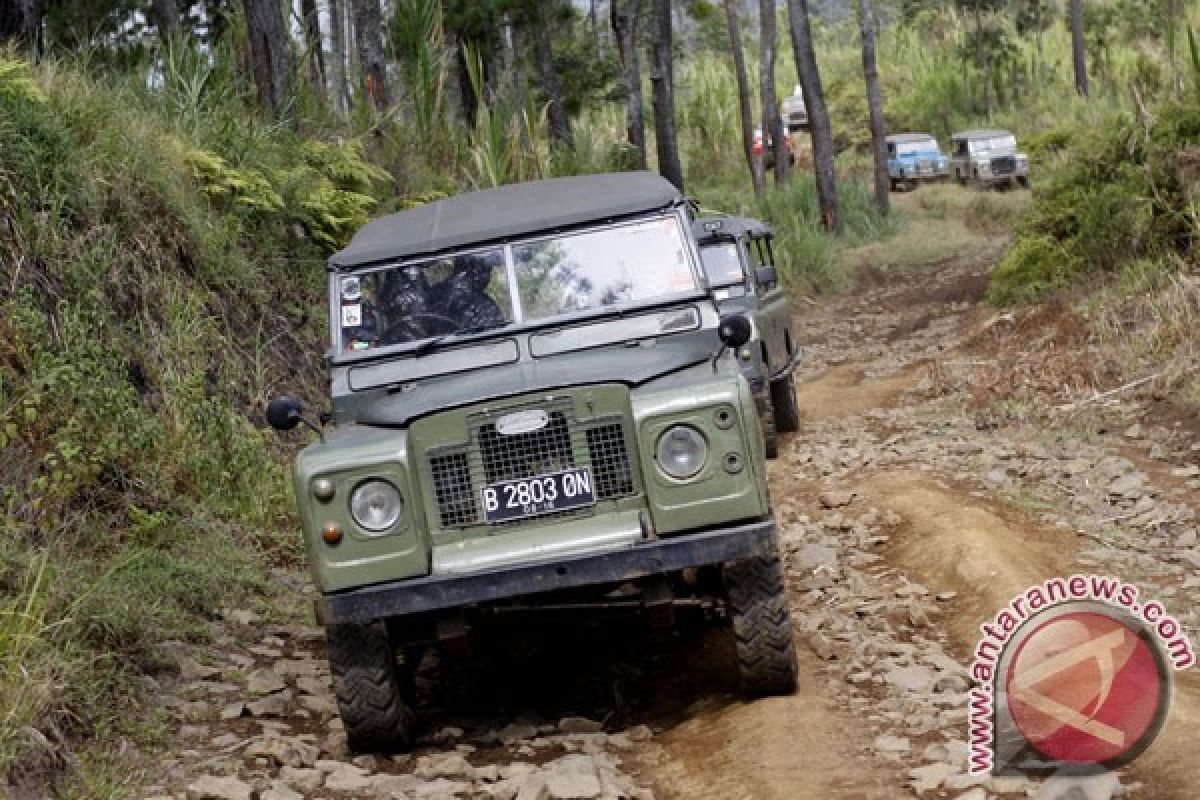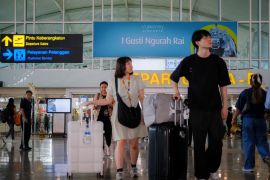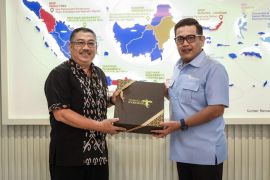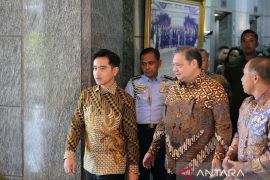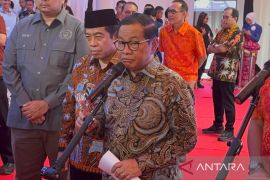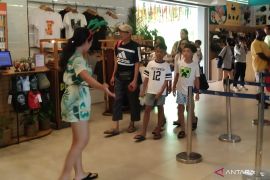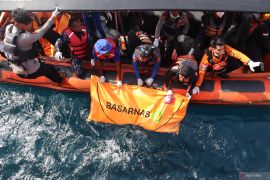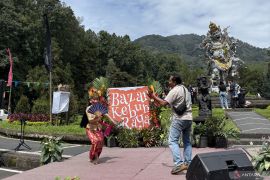With a familiar name and location on the path to Tangkuban Perahu Mountain, Jayagiri Village, spanning an area of some 946 hectares and encompassing rice fields, plantations, and forests, has the opportunity to develop natural tourism attractions.
"It was famous if you want to reach Tangkuban Perahu, hiking, definitely through the Jayagiri forest, some eight kilometers to the Tangkuban Perahu crater," Jayagiri Village Secretary Deni Iskandar stated.
The residents and village officials were prudent enough to seize opportunities resulting from the expansion of Lembang Village in 1982. In collaboration with Perhutani, the state forest management company, they developed a village forest area into a natural tourist destination without harming the ecosystem.
Iskandar elaborated that residents had understood and capitalized on the potential of rural tourism development in 2015. During that time, the residents made tourism bags, such as campsites, mancakrida areas, and art stages in nature.
"In the past, community initiatives were taken. It is just that now it has become more widespread," he explained.
The government had begun disbursing the Village Fund in 2015, and the village government utilized it to build better roads to tourist attractions.
Village tourism areas are also growing, so currently, 25 thousand tourists annually visit Jayagiri.
Jayagiri Forest Tourism
Jayagiri is a village usually frequented by hikers and camping enthusiasts to reach Tangkuban Perahu Mountain, with a stretch of pine trees and tea plantations.
The Jayagiri forest is still dense, shady, and lush, with pine and other large trees. It is cool. The forest area is speckled with road signs for climbers, shelter, guard posts, toilets, and trash cans.
Tourists can camp, conduct training, cycling, hiking, or simply enjoy nature during the Jayagiri tour where the contours are bumpy.
History buffs can stop by the park built to mark the first planting of quinine trees in Indonesia by naturalists, doctors, botanists, geologists, and German author Franz Wilhelm Junghuhn.
The researcher, born on October 26, 1809, made Lembang his second home and lived in Jayagiri until he died on April 24, 1864.
Village Innovation
The Jayagiri Village, since the Dutch era, lay on a route connecting three sub-districts that ended in the Cikole area, Lembang. Since 2000, off-road sports enthusiasts often cross the line.
Residents have capitalized on the economic prospects of extreme sports activities by opening stalls in the middle of the forest.
"The residents perhaps are able to gauge the prospects, as off-road tourists need a special area to rest. They also cooperate with Perhutani as the forest manager," Deni revealed.
The village has also put in place regulations to ascertain that off-road sports did not reach the settlement lane.
"The entry was from Cikole for fear that access would be dirty, so everything went through one door," he stated.
In 2014, tourism service companies had offered off-road tour packages to tourists from outside the region and ordered food from the central forest stalls of Jayagiri residents.
On weekends, tourism service providers can bring 400 people to enjoy the jungle lunch.
Along with the development of the tourism sector, there are also increasing efforts to meet the needs of tourists, including providing firewood and coffee supplies for shops around Lembang.
In order to prevent the adverse effects of tourism activities on the environment, awareness of forest management has been raised among residents.
Deni noted that his village residents often got the opportunity to partake in tourism training, including from the West Bandung Tourism Office.
"Yesterday, research was also conducted by universities in Gunung Putri, and they had gone camping there. The data will be submitted to the district government, and a follow-up will be done on edifying the community," he stated.
"Hence, we have to continue to preserve nature despite the population increasing," he noted.
In addition to being able to develop natural tourism, Jayagiri Village also has a Regional 1 Jayagiri Bandung Center for Early Childhood, Non-formal and Informal Education Development (PP-PAUDNI), which, in 2016, had become a pilot for Asia-Pacific nations.
The Educational, Scientific and Cultural Organization of the United Nations also recognizes the existence of the PAUD, which runs the Eco-Friendly Youth and Adult Entrepreneurship program.
PP-PAUDNI Head Djajeng Baskoro elaborated that success cannot be separated from the efforts of citizens to innovate in coming up with creative activities based on local excellence.
The Jayagiri village government continues to develop its tourism potential by involving residents. The application of the model is indeed apposite, taking into account that the development of tourist villages does necessitate continued efforts involving all components.
Moreover, the development model of rural tourism based on community empowerment that prioritizes community participation in tourism development according to research is most suitable for villages that develop tourism.
Editor: Sri Haryati
Copyright © ANTARA 2019
